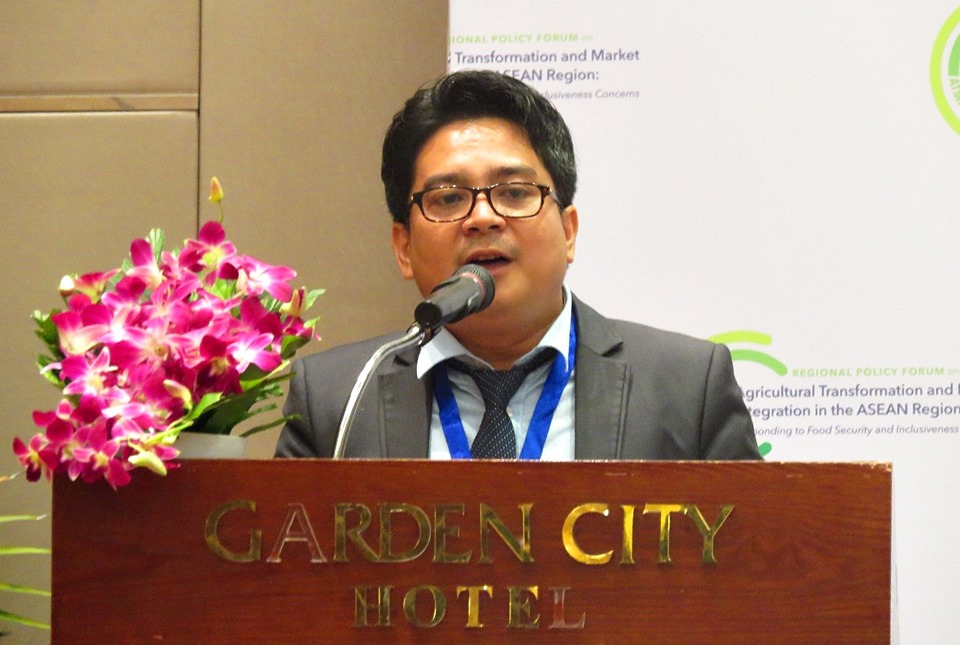The ATMI-ASEAN Project is being implemented by IFPRI as lead, and SEARCA as implementing partner. The RPF is part of the activities under the Component 2 of the project. The Forum aimed to showcase evidence-based policy analyses conducted by all various stakeholders of the agriculture sector of the region.
As the host country, Cambodia was represented by H.E. Dr. Sar Chetra, Deputy Secretary General of the Ministry of Agriculture, Forestry, and Fisheries (MAFF). Dr. Chetra; Dr. Pramod Kumar Joshi, Director-South Asia of IFPRI; Mr. Kaushik Barua, Program Officer in the Near East, North Africa and Europe (NEN) Division in IFAD; and Dr. Pedcris M. Orencio, Program Head of the Research and Development Department (RDD) of SEARCA, gave their messages during the Inaugural Session on behalf of their respective institutions.
Dr. Orencio, delivered a message on behalf of SEARCA. He highlighted the Center's mandate to build capacities of Southeast Asian countries in the area of agricultural and rural development through research and development, knowledge management and graduate education and institutional development, which supports the Project's objectives. He emphasized that as the region becomes a major player in the global agricultural trade market, stronger cooperation among institutions and stakeholders is key to the attainment of more competitive small-scale rural producers (SSRPs) and for them to capitalize on borderless trade brought about by the ASEAN Economic Community. He likewise encouraged the participants to use this forum as a venue to identify potential convergences among countries on various commodities considering common markets at the region, and determine the mechanisms for regional arrangements that can be explored, developed and implemented.
During session for lead papers, Dr. Paul S. Teng, SEARCA Senior Fellow, presented the regional perspective of agricultural transformation and marker integration. Prof. Jimmy B. Williams, ATMI-ASEAN Project Support Unit (PSU) Coordinator, facilitated a session about the Case Studies on Value Chains. Representatives from the five target countries presented the preliminary results of their national-level policy studies on their respective priority commodities. On the other hand, Dr. Bessie M. Burgos, Technical Advisor for Research and Development of SEARCA, chaired the session on Market Integration: ASEAN and Beyond. Other members of the SEARCA delegation were Ms. Bernice Anne C. Darvin and Ms. Carmen Nyhria G. Rogel, Program Specialists, and Ms. Loise Ann M. Carandang, Project Assistant, all from RDD.
More than 70 representatives from various government agencies, research organizations, the academe, farmer and civil society organizations, and the private sector of ASEAN Member States (AMS) attended the event. (Bernice Anne C. Darvin)
